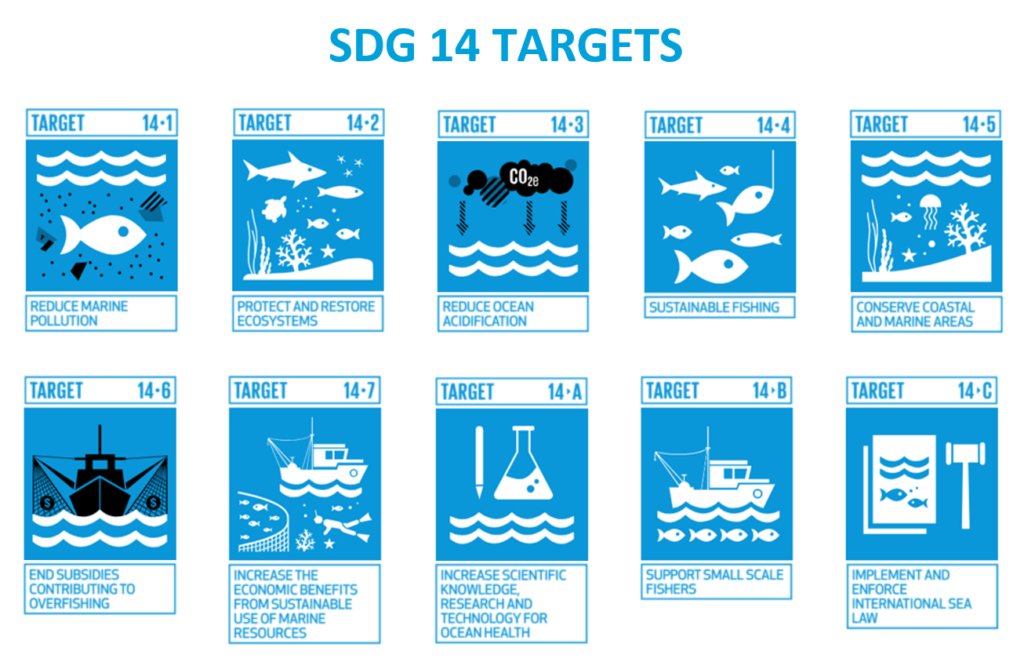The Sustainable Development Goals (SDGs) were agreed and adopted by the United Nations in 2015 as a universal call to action to end poverty, protect the planet and afford peace and prosperity to all people by 2030.

The 17 SDGs are integrated, they recognise that action in one area will affect outcomes in others. Their success requires collaboration and commitment by individuals, organisations and governments around the globe.
Sustainable Development Goal 14.

SDG 14, ‘Life Below Water’ recognises the critical importance of the ocean to all humanity. The oceans are the planet’s largest ecosystem and cover 70% of the earth’s surface – hence the reference to Earth being the ‘Blue Planet’.
The oceans are responsible for absorbing approximately a quarter of the world’s carbon dioxide (Co2) emissions each year which helps to mitigate the impacts of climate change. In addition to this, millions of people depend upon the fishing industry for their livelihood, millions on the tourist industries focussed around coastal areas and billions depend upon the protein that derives from fish and other sea food.
There are urgent issues which impact all of these areas which are addressed by the 10 targets which measure progress in specific areas within the goal.

It is clear by looking at these targets that many of these – like the goals – are interrelated and change in one will result in impacts in others. Our experience focusses on Target 14.1 ‘Reduce Pollution in the Ocean’.
80% of marine litter originates on the land. It can be discarded, blown by wind, drift into streams which flow into rivers which take it to the sea. Much of it is ‘single-use plastic’ Wherever we live, our individual actions can impact plastic pollution in our planet’s oceans.
© 2024 Expedition-XR